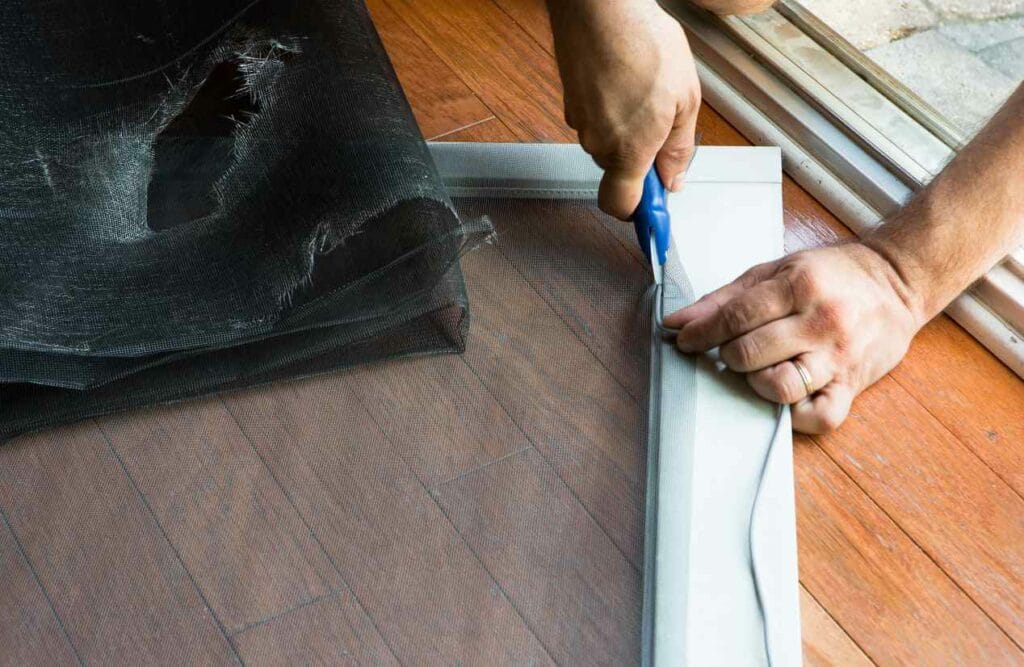There is a popular notion that using vinegar fly traps can eliminate pesky flying insects that make their way inside. But does vinegar truly repel or kill fruit flies and other types of winged invaders?
Understanding the science and methodology behind DIY fly traps is crucial to ensure best results. Explore the ways in which vinegar can be a natural way to eliminate fruit flies or house flies in this blog from the experts at Clegg’s Pest Control.
Does Vinegar Repel Flies?
Although it may be accurate to say that vinegar “repels” flies in the long run, the opposite is technically true. In fact, vinegar attracts flies, as opposed to being repulsive to them. Particularly in the case of fruit flies, these insects are on the hunt for overripe fruit and the microbes they carry. Flies detect the scent of acetic acid—the very same chemical in vinegar responsible for its strong aroma—which also collects in greater volumes as fruit ferments.
When it comes to pest control tactics, it’s important to note that flies are more likely to avoid lower concentrations as well as higher concentrations of vinegar, as this would imply that fruit is either under-ripe or overripe to the point of decay.
Does Vinegar Kill Fruit Flies?
If fruit flies are drawn to vinegar, then, how does it help get rid of them? It is true that a vinegar trap can kill a fly, but it’s not because the liquid solution is poisonous to them. Rather, a container with vinegar and dish soap functions as an attractant: The strong smell of vinegar lures flies to enter the trap, then the soap helps break the liquid’s surface tension, causing the flies to sink, drown, and die.
This method can potentially drown both regular flies and fruit flies, as the principle behind using vinegar is the same for both types of flies. However, it’s worth noting that larger flies like house flies or blowflies might be less susceptible than smaller, lighter fruit flies. This is because larger flies are generally more robust and might be able to escape from the liquid more easily.
How to Get Rid of Flies

With a functional understanding of vinegar traps in mind, you might be wondering about the best do-it-yourself fly control tips for your home or business, including how to kill flies with vinegar. Some steps to take and tricks to try include:
Vinegar Fly Trap
Fill a cup or small bowl with white vinegar or apple cider vinegar for flies, then add a few drops of dish soap. Cover the bowl with plastic wrap, and secure it with a rubber band. Poke holes in the wrap to create entry points for the flies. When they land on the liquid, the soap will disrupt the surface tension and cause them to drown.
Vinegar and Baking Soda
If you think an infestation is coming from your sink, vinegar and baking soda for flies is an effective household drain cleaner. You can mix a half cup of baking soda with either a half cup of salt, lemon juice, or vinegar for an environmentally-friendly disinfecting option.
Getting rid of flies involves a combination of preventive measures, sanitation, and targeted control methods. While vinegar can help control flies to some extent, it may not be the final solution for larger fly infestations. Additional ways to help keep flies out of your space include:
Identifying the Source
Determine what is attracting flies—such as damp areas and decaying food, trash, or other organic matter—and eliminate the source. Common sources of fly infestations include rotting produce, dirty sinks and sink drains, and house plants.
Proper Sanitation
Once you identify potential sources of a fly infestation, a combination of methods like proper sanitation, fly screens, and targeted insecticides may be more effective in managing fly populations. Maintain a sanitary space with these tips:
- Keep your living space clean and tidy.
- Regularly clean up crumbs, spills, and food debris.
- Wash dishes and kitchen surfaces immediately after use.
- Empty trash cans frequently and seal them with tight lids. Properly clean your trash can on a regular basis.
- Store and seal fruit and other produce in the fridge, while ensuring it does not become overripe on counters and other open areas.
- Clean pet waste promptly, maintaining clean feeding areas, litter boxes, etc.
- Avoid overwatering house plants.
Sealing Entry Points

A simple fly prevention step is to install screens on doors and windows to prevent flies and other pests from entering your home.
Ventilation
Ensure proper ventilation in your home to discourage flies from settling in damp or humid areas.
Outdoor Maintenance
Make sure your outdoor areas are free from standing water, which can attract flies to breed.
Purchasing Fly Traps and Baits
Consider getting commercial fly traps or baits that are designed to attract and capture flies.
Professional Help from Pest Control Experts
If you’re dealing with a severe fly infestation, it’s time to seek help from your local pest control company. Only trained, experienced professionals have the latest methods for fly elimination and management so you don’t have to battle these insects alone.
Don’t Fly Solo in Fighting Flies: Call Clegg’s!
At some point, a fly or two is bound to enter your home or business through an open door or window. However, if you’ve got flying insects swarming your kitchen or other areas of your building, you’ve got a problem.
Bid farewell to fly troubles, and make informed decisions about fly control with expert advice and services from Clegg’s Pest Control. Serving the entire state of North Carolina, we are happy to start treating your home for flies ASAP. Simply contact us or request your free estimate today!
